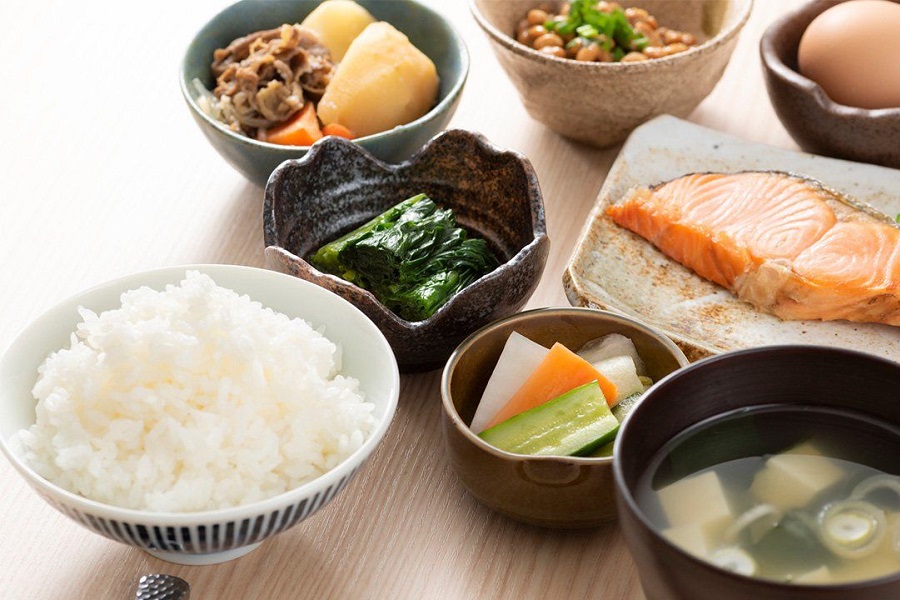- The confrontation between coarse grains and refined grains.
In ancient times, the staple food eaten by people was mostly coarse grains. With the development of the food processing industry, the original cereals have changed beyond recognition. Most of them are processed into refined flour by cramping and peeling, which is used to make steamed buns, breads and cakes that are easier to eat. Even the coarse grains we often say have undergone modern processing or starch modification technology to become more delicate and delicious. These highly processed foods are easily absorbed by the human body, which leads to new problems in human blood sugar control. In order to combat the body becoming an easily absorbed calorie store, we should choose more whole grains with higher crude fiber content in our diet, such as beans, oats, brown rice, etc.
- How many staple foods are enough to eat every day?
So how many staple foods should be eaten every day to ensure sufficient carbohydrate supply and meet people’s daily needs? The average adult woman can consume about 250 grams of staple food per day, and men can increase it to 400 grams. The sources of carbohydrates are very rich, including rice, noodles, potatoes, sweet potatoes, beans and so on. Among these carbohydrates, healthy and low-fat high-quality carbohydrates are preferred first.
- When eating staple food, please be wary of fat.
Once you have enjoyed the deliciousness of fat, you will no longer be able to endure the dullness of oil-free food. Whether you’re shopping for supermarket groceries, meeting friends at restaurants, or having family dinners, you can’t avoid high-fat foods. In fact, we are often tempted by the scent of fat. For example, we like the sweetness of butterfat, the tenderness of animal fat, and we like to make oil-free vegetables and salads shiny, and add seasonings containing thick animal oil. With the wand of fat, bland, high-carb foods like vegetables and grains are also dramatically transformed into very tasty and energy-packed foods. A reasonable combination of carbohydrates and fat can balance the daily calorie intake of the human body. To ensure a reasonable amount of fat, it is first necessary to control the intake of oil. Of all cooking oils, olive oil should be the first choice, and cooking techniques should be as simple as possible, avoiding frying and frying. More cooking not only imparts more original flavor to food, it is also healthier and more beneficial.
- Whole grains prevent hair loss.
The five grains can nourish the kidney, and the excess of kidney qi will lead to more hair. Advertisements for hair loss treatments are intensifying today, widely due to people consuming too much refined grains, or refusing staple foods. Insufficient intake of staple food will easily lead to deficiency of qi and blood, and insufficient kidney qi, which will naturally lead to hair loss. Afraid of gaining weight and deliberately not eating staple food, it is easy to damage the kidney qi due to unbalanced nutrition. In addition, eating less staple food will inevitably increase meat consumption. Studies have shown that excessive meat intake is an important accomplice to seborrheic alopecia. Therefore, daily intake of 300-400 grams of staple food can prevent hair loss
- Before work, please absorb enough carbohydrates.
According to research by foreign experts, people who have almost abstained from carbohydrates in weight loss have difficulty in tests that require high cognitive ability. And if you don’t eat enough carbohydrates, you will not be able to synthesize glucose in your body, and glucose is the only source of energy for your brain to work. Stop ingesting staple foods and rely entirely on protein and vegetables for energy, which can easily lead to low blood sugar, insufficient energy supply to the brain, and people will feel unable to concentrate, irritable, and tired. So to keep your work day high, don’t forget carbohydrates.
- Poor memory? Maybe the food is too low.
A survey by Tufts University in the United States found that women who did not eat high-energy foods such as pasta, bread, pizza, and potatoes for a week had impaired memory and cognitive ability. The researchers responsible for this study pointed out that this is because brain cells need glucose for energy, but brain cells cannot store glucose and need a continuous supply through the blood. Insufficient intake of carbohydrate foods may cause a reduction in the supply of glucose that brain cells need, so , causing damage to learning, memory and thinking.
- Eating whole grains does not mean not gaining weight.
Common whole-wheat products include whole-wheat bread, whole-wheat crackers, oatmeal, popcorn, brown rice, and kibbles. Eating whole grains can help you lose weight. Whole-wheat foods contain bran, which is not found in regular flour, and the main component of bran is cellulose. Every 100 grams of refined white flour produces about 350 kcal (1 kcal = 4.10 kJ) heat, while the same amount of whole wheat flour produces 317 kcal, so eating whole wheat flour produces about 10% less heat than ordinary flour.


